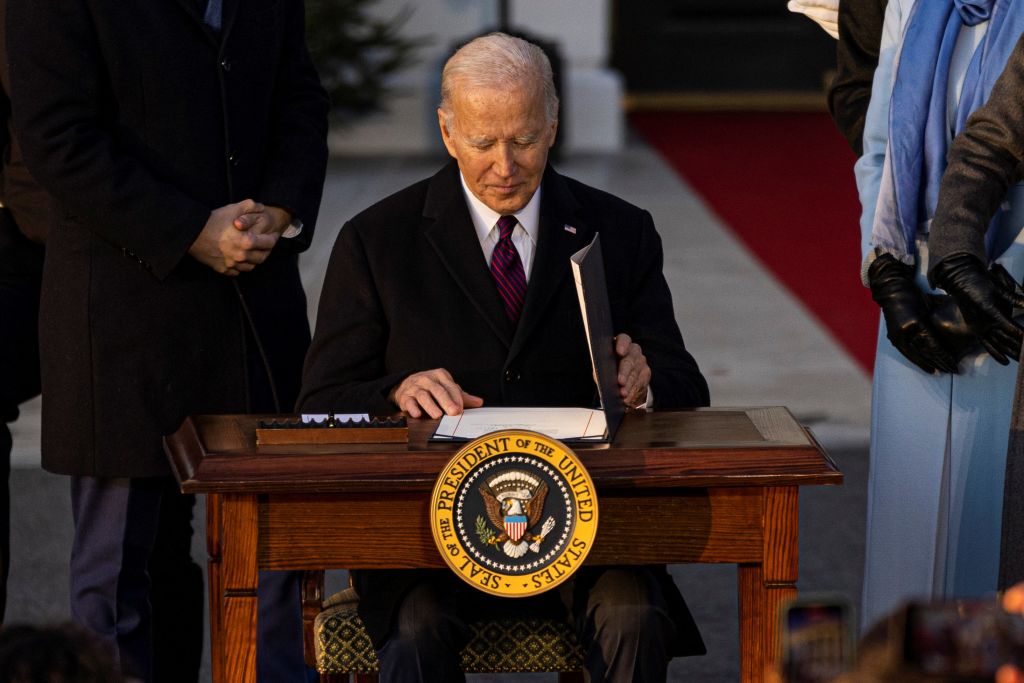
Source: janiecbros / Getty
On Dec. 13, President Biden signed the Respect for Marriage Act, which will ensure critical federal protections to same-sex married couples, as well as require that same-sex marriages be recognized across state lines, regardless of where the marriage license was issued. This bill means that same-sex married couples across the country can now receive the same federal benefits as opposite-sex couples.
The new bill overturns the Defense of Marriage Act of 1996, which federally banned same-sex marriages. But it expands beyond giving assurances to same-sex couples, stating that the government is prohibited from denying marriage to any two people “On the basis of the sex, race, ethnicity, or national origin of those individuals.” Here’s a closer look at why this bill is so monumental and why it was needed at this moment in history so badly.
A Brief History Of Same-Sex Marriage In The U.S.

Source: Xinhua News Agency / Getty
Same-sex marriage has been legal in the United States on the federal level since 2015, thanks to the Obergefell v. Hodges case. After this case, the Supreme Court ruled that all same-sex couples have the right to marry and have their marriage legally recognized throughout the United States. So, why the need for the Respect for Marriage Act, then?
It’s no secret – particularly after the recent ruling on abortion rights – that we currently have a predominantly conservative Supreme Court. After the overturning of Roe V. Wade in the recent Mississippi Dobbs case, the LGBTQI+ community and minorities across the country grew increasingly nervous that additional rights would be taken away.
One major concern has been that the Supreme Court would overturn Obergefell v. Hodges, which would revert same-sex marriage rights to state law. That could mean that, once again, same-sex couples in certain states would have to travel to a different state where same-sex marriage was legal to be issued a license. After the overturning of Roe v. Wade, crossing state lines to pursue a fundamental right is something many are all too familiar with right now. The Respect for Marriage Act prevents this from happening, should the Supreme Court ever decide to turn over Obergefell v. Hodges.









